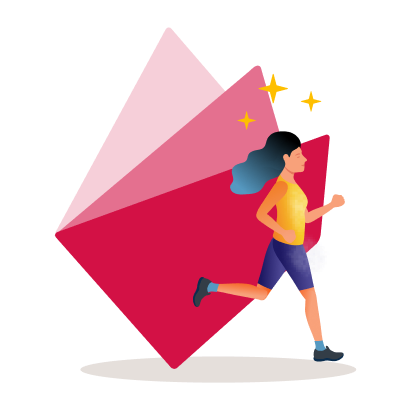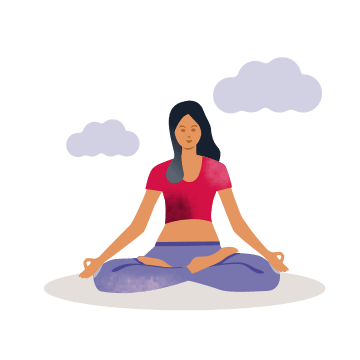According to a study by Universiti Malaya, there has been a consistent increase in the prevalence of mental health issues in Malaysia during this pandemic. This includes anxiety disorder.
It is important to remember that having anxiety is not something to be ashamed of. There are degrees of anxiety that help alert us to threats and protect us from danger like when encountering a wild animal on a hike, or it can also act as a motivation to help us reach important goals like preparing for a job interview.
However, for some, anxiety can become a serious problem if it is not treated properly and there are certain habits that can make it worse. Here are some common habits that you should try to avoid:
Drinking caffeine
Caffeine is known to be an “anxiety amplifier” which can affect your anxiety hours later. Studies by Cambridge University found that cutting down on caffeine benefits people with anxiety disorders. So, try reducing your caffeine intake and opt for herbal teas instead. Try chamomile, valerian root, and oat straw to help relieve your anxiety.
Skipping meals
Irregular meals or skipping meals can lead to hypoglycaemia which is a dip in your blood sugar. This can crash your energy and your mood. According to a research by the University at Albany, recurrent hypoglycaemia increases anxiety. Therefore, it is recommended to eat something every two hours, around five times a day.
Eating processed foods
Most processed foods contain additives and according to a research by Georgia State University, some of these ingredients may increase the risk of anxiety-related disorders and adversely affect social behaviours. Therefore, make sure you opt for natural whole foods instead. Make vegetables and whole grains the bulk of your calories because they are a good source of nutrients and complex carbohydrates which help increase the amount of serotonin in your brain to help regulate your mood.
Not getting enough fluids
Many people may not realise it, but dehydration can affect your mental health too. It increases the heart rate and can make you feel light-headed, which are symptoms of anxiety attacks. The Institute of Medicine recommends that an adult drink between nine to 13 cups of water a day.
Not exercising enough
Studies cited in the Journal of Neuroscience have shown that a lack of physical activity can lead to an increase in anxiety. So, don’t just sit around all day. Try getting up every 30 minutes to an hour and go for a walk (even if it is to the refrigerator for an apple or some healthy snacks). It’s a good idea to incorporate some yoga or light movements to your daily regime.
Lack of sleep
According to studies cited in the Journal of Behaviour Therapy and Experimental Psychiatry, getting less than eight hours of sleep can increase repetitive negative thoughts that lead to anxiety. So, turn off or mute your mobile phone, dim the lights and get some shut eye.
Constantly checking social media
Whether by your will or not, having a smartphone is an inevitable part of our daily lives. One consequence of checking your phone so often is the temptation to scroll mindlessly through your social media feeds. Many studies have shown that excessive exposure to social media can increase symptoms of anxiety and depression in those who use them. So, try not to be so absorbed in your Instagram or Facebook feed by setting a daily reminder to manage your usage.
Eco-anxiety
Eco-anxiety is a real thing and experienced amongst almost 70% of Gen Z.
Watch the video below to learn how the changes in the environment affect us physically and psychologically.
How to start managing your anxiety
What you can do as a start is to be aware of the habits above and try to avoid them as much as possible. Set some small actionable goals to help you through that first step and once you start learning how to manage your anxiety, you’ll feel much better.
References
https://www.amosuir.com/worst-anxiety-triggers/
https://www.frontiersin.org/articles/10.3389/fendo.2015.00175/full
https://relate.com.my/anxiety-disorders/#:~:text=The%20global%20estimate%20of%20the,disorders...
https://www.nap.edu/read/10925/chapter/6
https://www.psychologytoday.com/intl/blog/why-we-worry/201612/social-media-loneliness-and-anxiety...
https://www.sciencedirect.com/science/article/abs/pii/S0005791617300629?via%3Dihub
https://pubmed.ncbi.nlm.nih.gov/23637169/
https://www.anxietycanada.com/articles/anxiety-101-what-you-and-your-child-need-to-know-about...
https://www.healthline.com/health/anxiety-relapses-the-temptation-of-bad-habits
https://www.prevention.com/health/g20447417/5-habits-that-make-your-anxiety-worse/
Related articles



